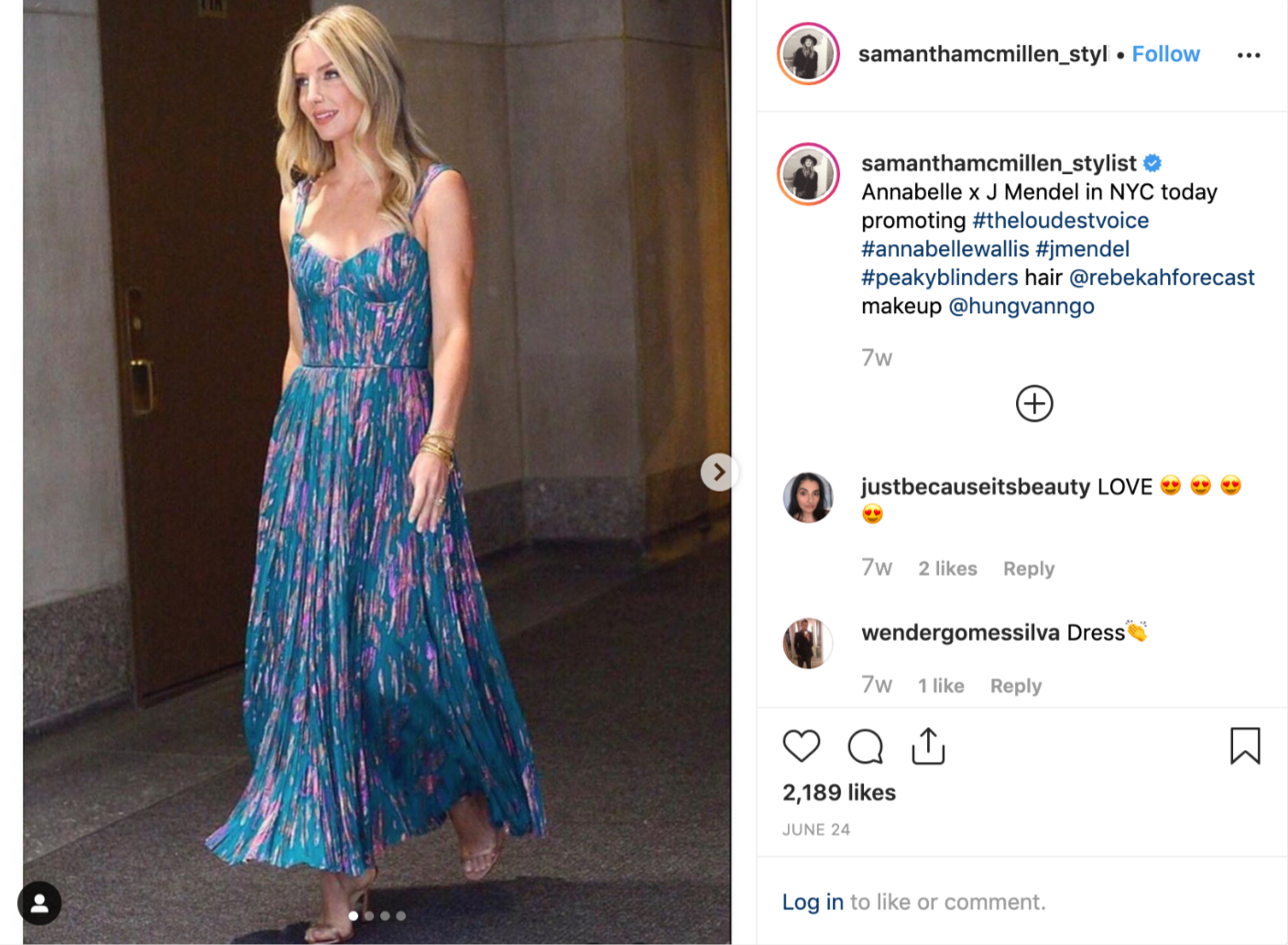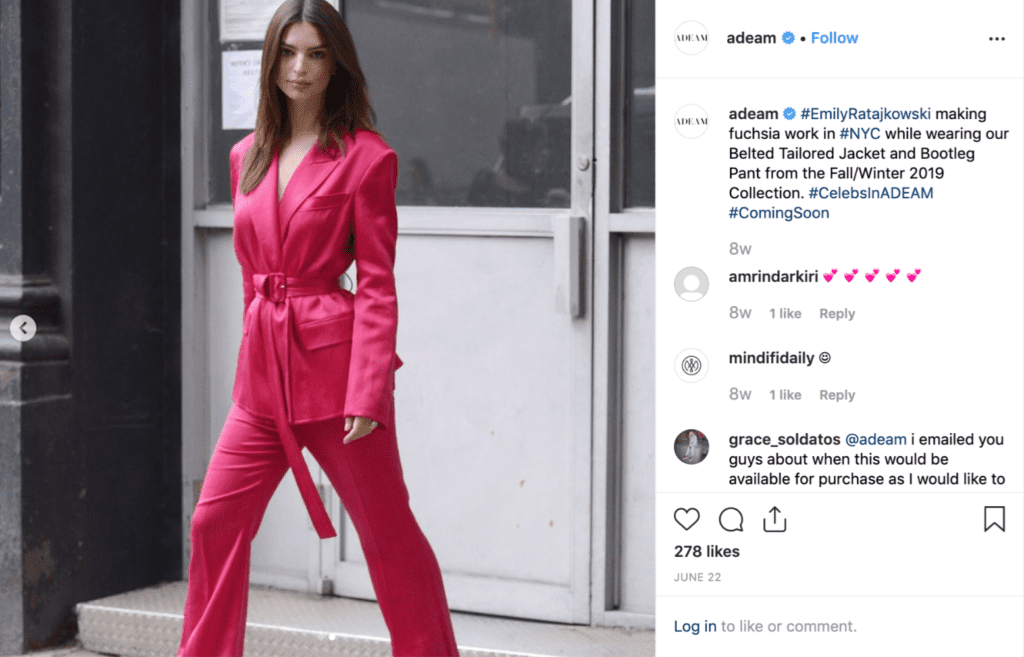Images of Emily Ratajkowski and Annabelle Wallis are at the center of two new paparazzi lawsuits, the latest in a string of similar cases initiated over the past few years. Photographer Edward Opinaldo has filed copyright infringement suits in a New York federal court in Monday, asserting that womenswear brand Adeam and creative management powerhouse The Wall Group posted images that he took of the buzzy model and English actress on their respective Instagram accounts without licensing the images or receiving his permission to do so.
According to the complaint that counsel for Opinaldo filed against Adeam, the lawsuit arises from the New York-based fashion brand’s allegedly “unauthorized reproduction and public display of a copyrighted photograph of fashion model Emily Ratajkowski, [which is] owned and registered by Opinaldo, a New York based professional photographer.” To be exact, the photog asserts that Adeam posted the photo on its Instagram page “as tool to promote and sell its clothing,” thereby running afoul of his exclusive rights as the copyright holder, including his exclusive right to display the image and/or authorize others to display it.
While Opinaldo’s case against Adeam seems to be a relatively open-and-shut one, the lawsuit pending against The Wall Group is less straightforward in large part because the agency did not actually post the image at issue – one of Wallis at a promotional event in New York for the Showtime series The Loudest Voice – on its own heavily-followed social media accounts. Instead, as Opinaldo asserts in his case, stylist Samantha McMillen posted the image on her Instagram account “to promote [the management] company.”
Opinaldo claims that Los Angeles-based McMillen – who is not named as a defendant in the lawsuit – is an “employee” of The Wall Group and thus, the agency may be held liable for her employment-related actions, such as her allegedly infringing post. But that might not be true.

Opinaldo’s choice of defendant in this case an interesting – i.e., inappropriate – one because traditionally, stylists and other creative talents, such as creative directors, photographers, makeup artists, etc., do not maintain an employer, employee relationship with their management company. Alternatively, the management company or agency acts as a representative for the creative talent, who is usually classified as an independent contractor rather than anyone’s “employee,” a distinction that is significant, as it will likely shield The Wall Group from liability in the case at hand.
Practically speaking, the management company, creative relationship sees management companies market their creatives to and connect them with third-parties in need of their services. Management companies are also commonly responsible for booking the jobs, billing the clients for the jobs, and generally acting as a middleman between the creatives and third-party clients. (That is very different from embodying the role of an individual’s employer, a relationship that is defined by law and thus, must meet a number of factors centering on the so-called employer’s right to “control” the manner or means by which the employee does his/her job in order to be considered an employer-employee relationship).
In exchange for such services, management companies typically earn income by way of a commission taken from the money earned by the creatives in connection with each job, which means that while the management company does not pay the talents out of its own pocket or vice versa, thereby, further moving their arrangement away from a traditional employer, employee scenario.
Nonetheless, just as in his case against ADEAM, Opinaldo has set forth a claim of copyright infringement against The Wall Group and is seeking monetary damages “up to $150,000 per work infringed” plus “attorney’s fees and full costs.”
Reps for the defendants were not immediately available for comment.
*The cases are Opinaldo v. Adeam International Corporation, 1:19-cv-07719 (SDNY) and Opinaldo v. The Wall Group, LLC, 1:19-cv-07720 (SDNY).











